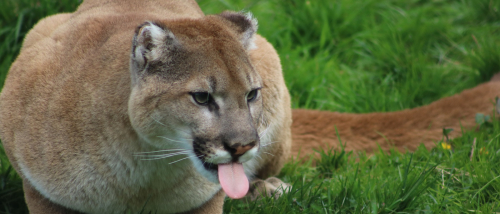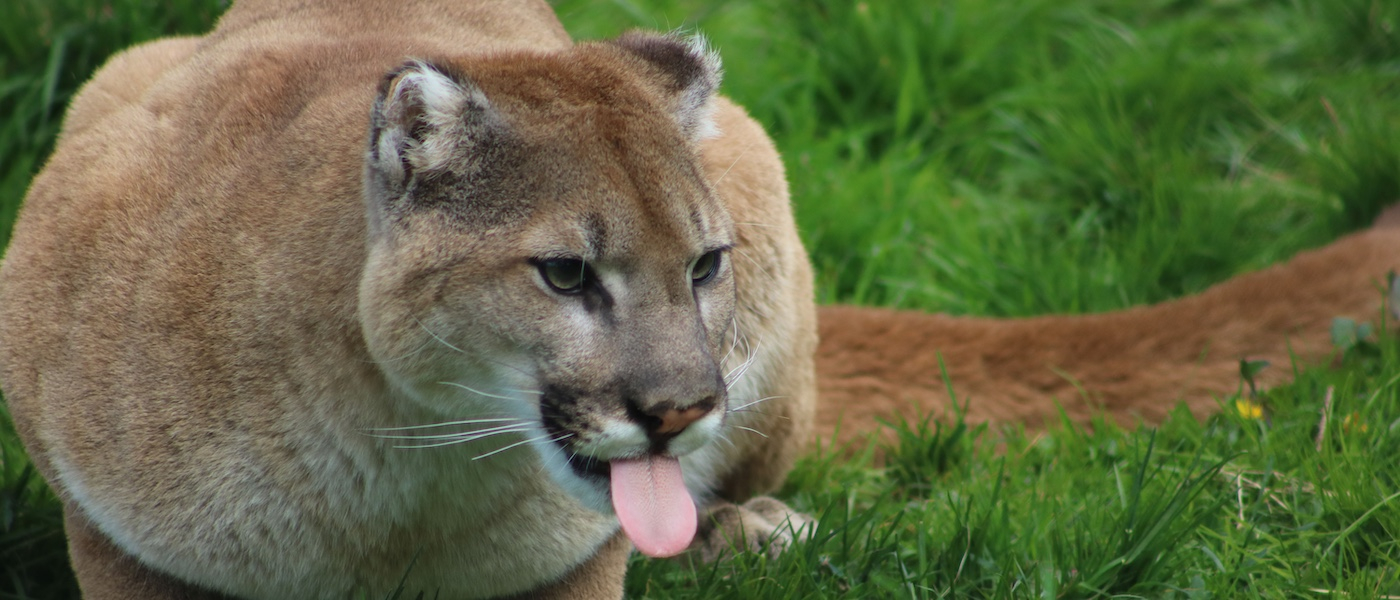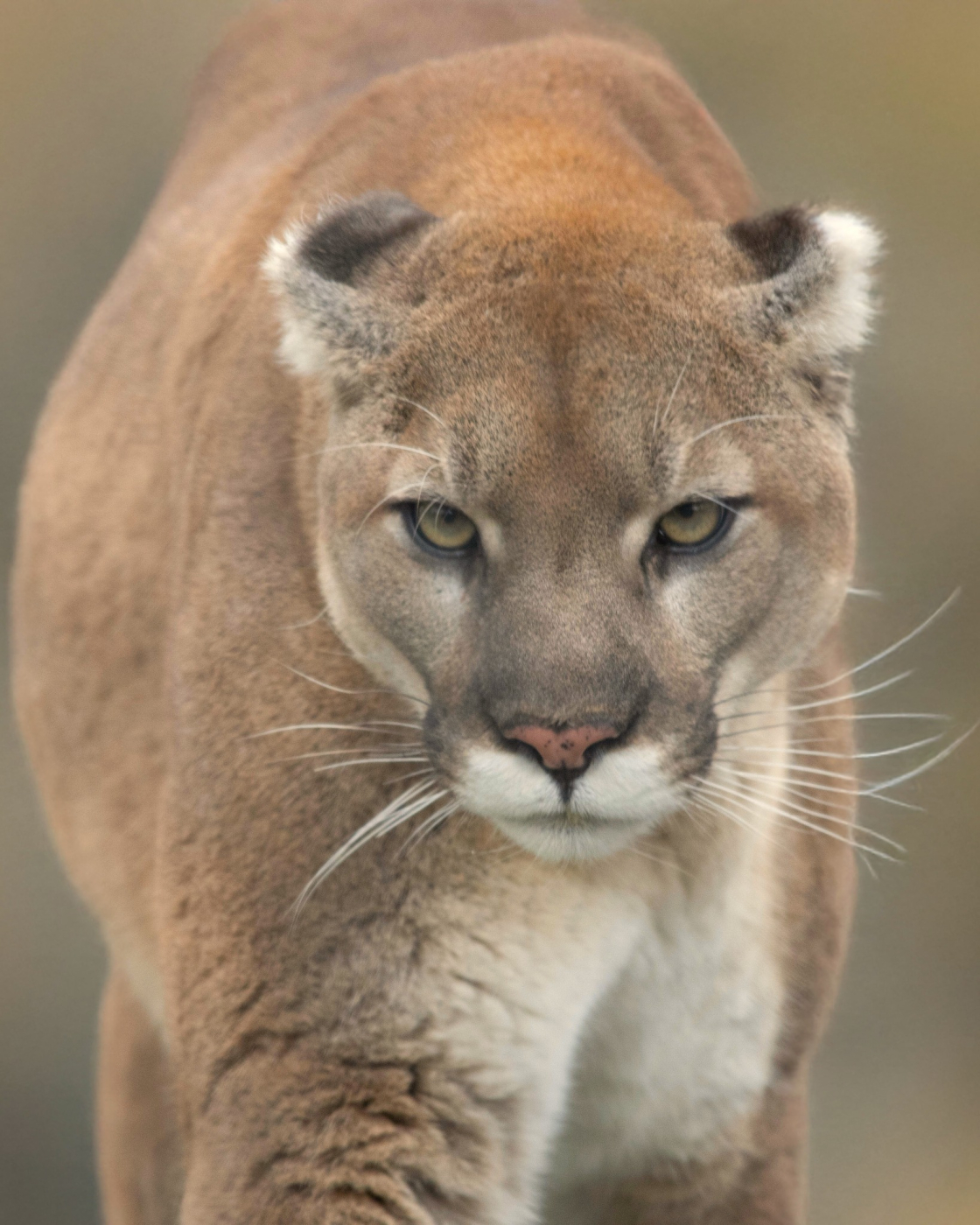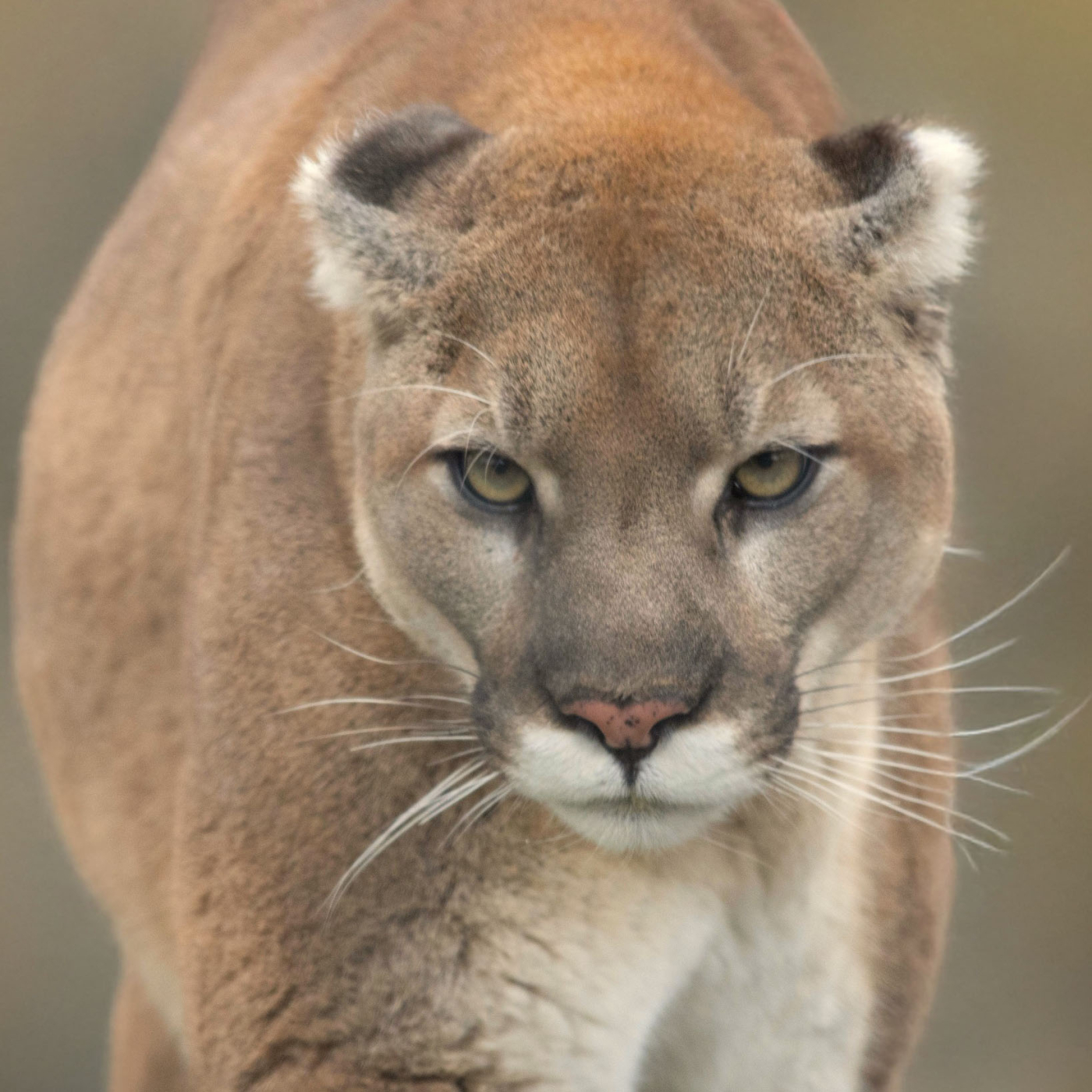Common Name: Cougar
Scientific Name: Puma concolor
Conservation Status: Least Concern
At the zoo: Rocket (male, 8y) - you can find Rocket in the Southwest corner of the zoo beside the Grizzly bears
Habitat:
Cougars are found in a wide range of habitats including forests, shrubland, grassland, and deserts throughout western North America and South America.
Diet:
Carnivorous - deer, porcupine, beaver, hare, moose, elk, wild sheep, mountain goats, black bear cubs, grouse
Life Expectancy: 20 years
Biology:
Cougars are large cats with short fur ranging in colour from reddish-brown to grey-brown with light underparts. The kittens are spotted with ringed tails. They weigh 29-129 kilograms and measure 1.5 - 2.75 meters long from nose to tip of tail.
Native to North, Central, and South America, cougars are the most widely distributed mammals in the western hemisphere and are found in a wide range of habitats. Despite their conservation status, cougars are threatened with habitat loss and fragmentation, especially where urbanization is accelerating.
Reduce attracting cougars to residential areas by keeping pets and pet food indoors at night, removing bird feeders in the spring, and installing an electric fence around chickens and small livestock.
Fun Fact:
The cougar is the largest of the three wild cats in Canada (the other two are lynx and bobcat).
More about Rocket:
Rocket was originally transported to the zoo by members of the Conservation Officer Service from the Chilcotin region in January 2018. He was found as a cub underneath someone's porch emaciated with frostbitten ears. He had been trying to survive on his own for awhile after having lost his mother. The GVZoo Animal Health Team was able to nurse him back to full health.
Rocket resides here at the GVZoo as an ambassador animal. Having lost his mother, who would teach him critical survival skills and suffering injuries in the wild prior to rescue, he is not a candidate for re-release.






